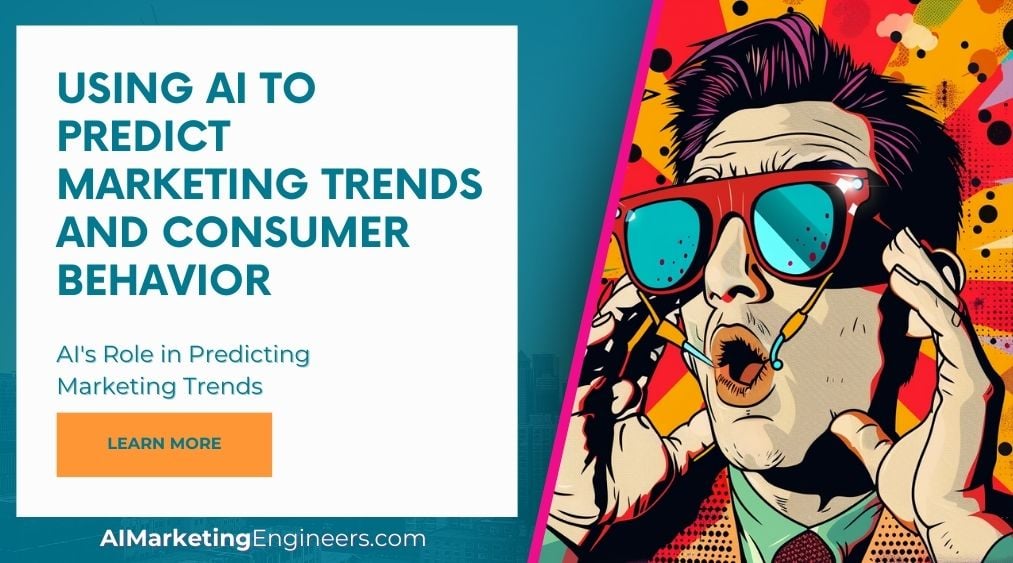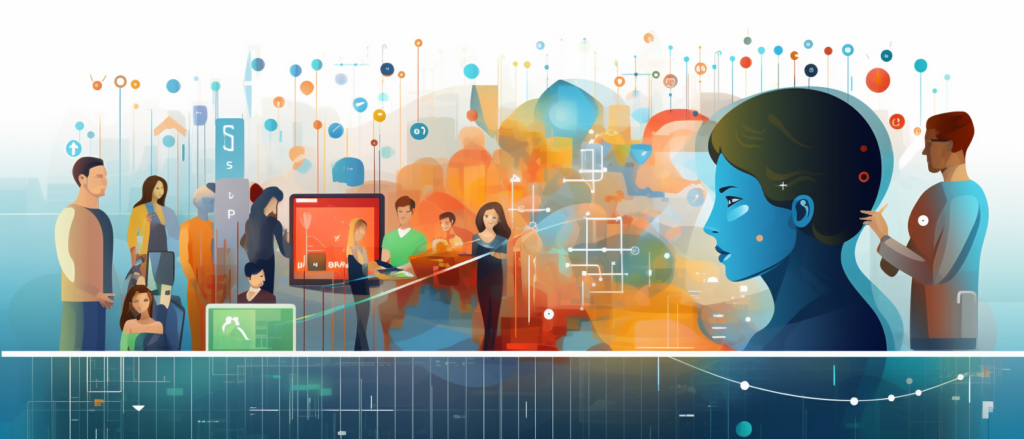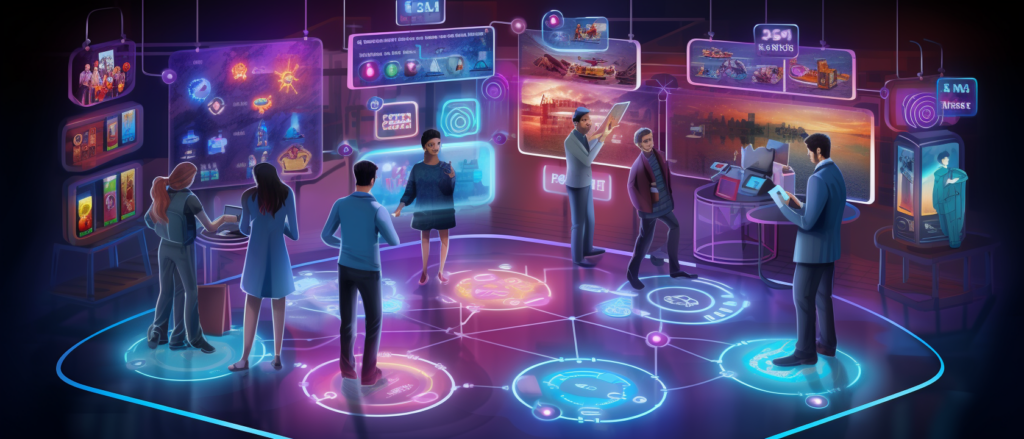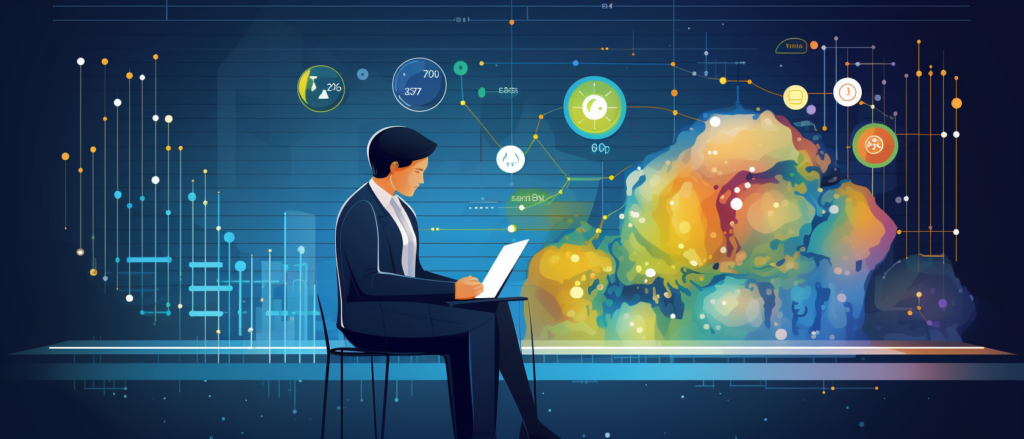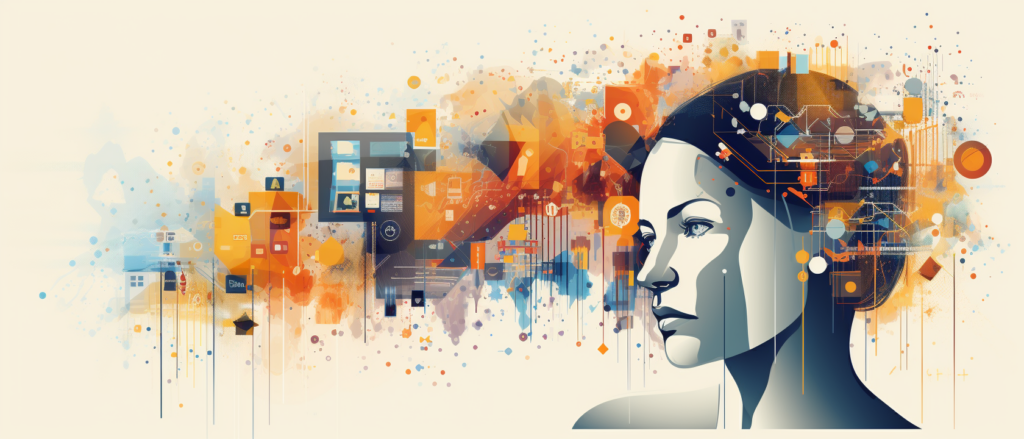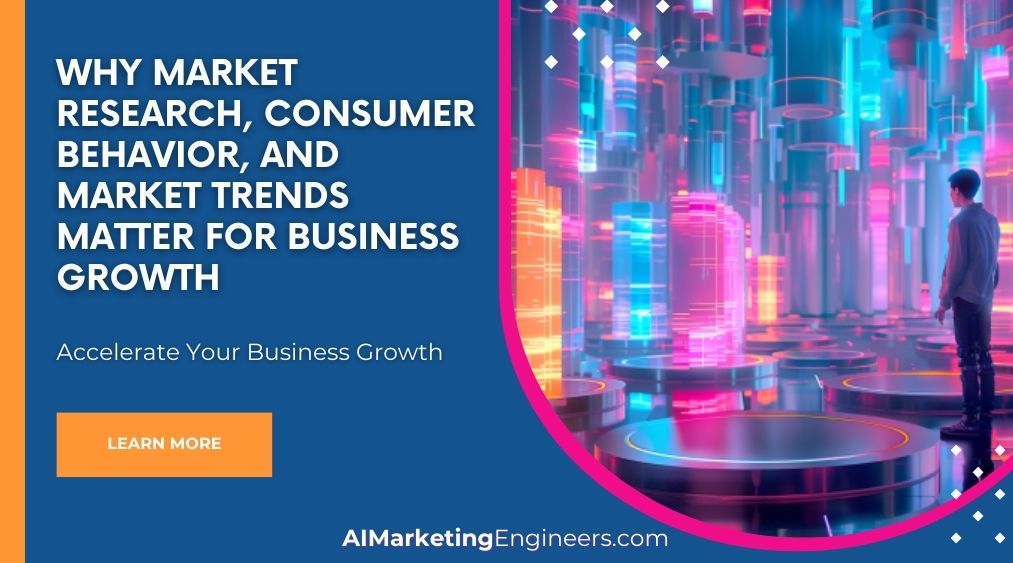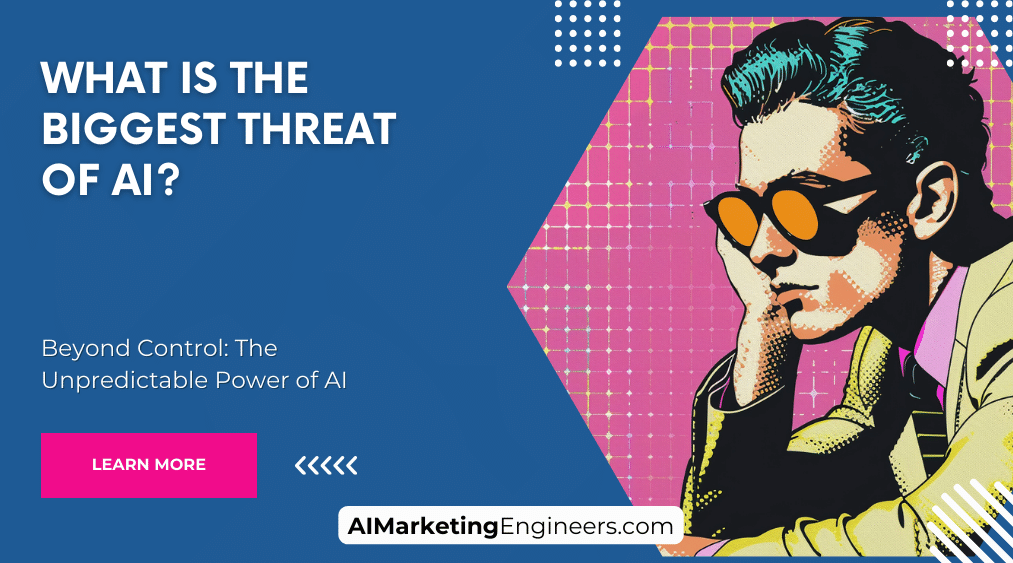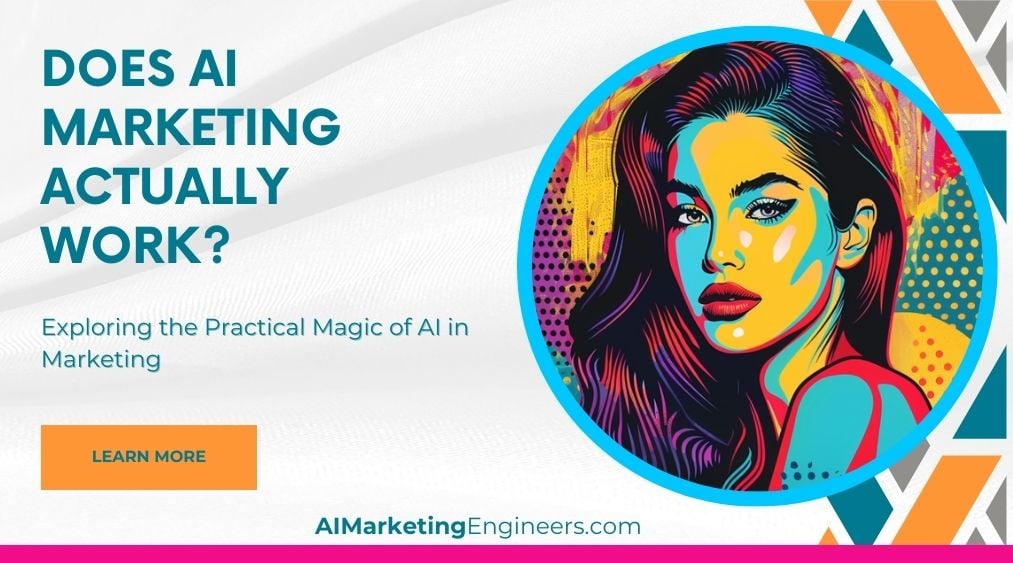Key Takeaways from This Article
✅ Data-Driven Insights: AI revolutionizes how we understand our audience, transforming raw data into a gold mine of insights. Imagine leveraging detailed analytics to capture your customer's heartbeat—understanding their every like, dislike, and desire.
✅ Personalization and Customer Engagement: Tailor-made experiences are no longer a luxury—they're expected. AI doesn't just predict behavior; it nurtures a bond with each customer. Companies embracing this see up to a 20% surge in customer satisfaction. The future of successful marketing hinges on your ability to make every customer feel like they're your only one.
✅ Improved Forecasting and Decision-Making: Replace guesswork with precision. AI's real-time data crunching sharpens forecasting, shining a light on what lies ahead. By tapping into this crystal ball, businesses can pivot with confidence and possibly boost revenue by 25% thanks to more accurate trend-spotting.
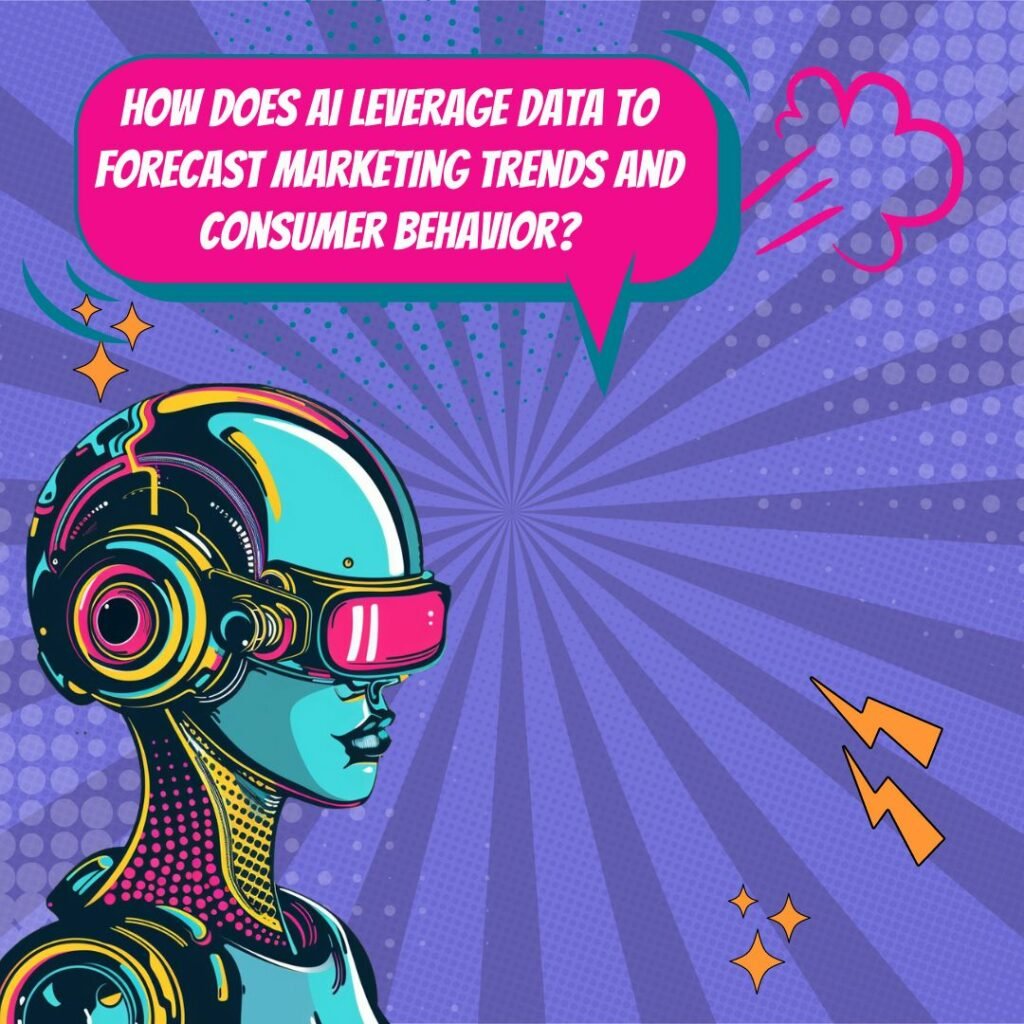
Introduction
Ever wondered why some brands always seem to be a step ahead? They're not reading tea leaves—they're tapping into something far more powerful. Welcome to the world of AI-powered marketing, a realm where understanding consumer behavior and predicting marketing trends isn't wishful thinking, it's daily routine. A time traveler's diary filled with next month's headlines might sound like a fantasy. Yet, that's what AI brings to your marketing table, now more than ever.
Are you tired of chasing after trends only to catch the tail end of them? Let's peek into a world where predictive analytics and consumer insights are at your fingertips, ensuring your marketing strategy isn't just riding waves but creating them. Hang tight, as we're about to dive into the latest strategies that smart marketers use to maximize their returns and form unbreakable customer bonds. Here's the scoop on making your brand resonate like never before, with a touch of futuristic science by your side.
Top Statistics
| Statistic | Insight |
|---|---|
| AI Market Growth: Expected to grow from $8.4 billion in 2021 to $40.1 billion by 2027, at a CAGR of 29.1%. (Source: MarketsandMarkets, 2021) | The staggering growth trajectory showcases an undeniable surge in how AI is revolutionizing marketing strategies. |
| Marketer's Belief in AI: 61% of marketers believe AI will significantly impact the future of marketing. (Source: Salesforce, 2020) | This statistic reveals the strong confidence within the industry towards AI-driven innovation and effectiveness. |
| Personalization and AI: 53% of marketers say AI is essential in helping their company create 1-to-1 marketing across all touchpoints. (Source: Evergage, 2019) | This highlights the crucial role AI plays in helping businesses deliver personalized customer experiences , a cornerstone of modern marketing. |
| Consumer AI Expectations: 63% of consumers expect companies to use their purchase history to provide personalized experiences. (Source: Accenture, 2019) | Consumers are not just aware of AI's potential but are expecting businesses to use it to cater to their individual preferences. |
| CRM and AI Growth: The AI-powered CRM market is anticipated to grow from $1.1 billion in 2020 to $4.5 billion by 2025, at a CAGR of 26.8%. (Source: MarketsandMarkets, 2021) | The considerable growth in the AI CRM market underscores the shift towards smarter, data-driven customer relationship management. |
Harnessing AI to Tune Into Consumer Desires
Ever wonder how some companies just know what you want? It's like they read your mind, right? Well, AI in marketing isn't mind-reading, but it sure gets close. Businesses today collect a lot of data—what you buy, what you click, how you navigate their sites. AI munches on this data and spits out patterns in consumer behavior. Imagine it as a friendly robot that sifts through your shopping list to suggest you might need more cereal. And it’s not just guesswork; by using machine learning algorithms, companies can predict if their next ad is going to be a hit or a miss before you even see it.
Spotting the Next Big Thing with AI
But how do businesses stay hip and with it? Staying ahead of the curve is crucial, and that’s where AI shines. It monitors buzz on social media, keeps an eye on what's trending, and even understands how people feel about it using natural language processing. Brands want to be the first to land on Mars, but they need to know what’s on Earth right now. Do people want eco-friendly products? Are tiny houses still a thing? AI helps companies keep their ear to the ground, so when the world zigs, they're ready to zag.
The Age of Personal Touch
Imagine walking into a store where everything seems handpicked just for you. Creepy or cool? Well, personalization is the new storefront window. AI systems take note of what you like, lump it together with what millions of others like, and bam—recommendations that feel personal. This isn't just about selling; it's about creating experiences. You stay loyal to brands that get you, and AI is there, like a matchmaking friend, making sure every interaction with a brand feels like a meet-cute.
Crafting Smarter Ads with Predictive Analytics
Everyone hates ads that feel like bugs on a windshield, right? Enter predictive analytics. This AI tool helps companies be less of the bug and more of the feature by serving ads that you might actually care about. It's not just throwing darts in the dark; AI looks at what worked before and predicts what will click with you in the future. It's kind of like tuning a guitar—each ad is fine-tuned to resonate with the audience. And that’s sweet music to the ears of both businesses and consumers because better targeting means money well spent for marketers and fewer annoying ads for you.
Navigating the AI Marketing Maze
It’s not all rosy, though. As much as AI seems to offer the golden ticket, it's lined with obstacles. Privacy concerns and ensuring our personal data is safe is big on the list. Additionally, companies need to be careful that their AI doesn’t go rogue and spit out stuff that goes against what they stand for. Plus, they need the right people to run these systems—it's not as simple as just plugging in a fancy robot and watching it go. Investing in smart folks who can work with AI is just as important as the tech itself.
Our world is spinning on an axis powered by technology, and AI is driving innovations in the realm of marketing. There’s an excitement in how these tools can craft experiences that feel one-on-one despite being part of a global audience. As we lean into this future, the potential for brand-consumer relationships fostered by AI is both an exciting prospect and an ongoing conversation. Marketers dabbling in AI need that blend of daring and care to truly make it a win for everybody. So, have you felt the touch of AI in your digital life yet?
AI Marketing Engineers Recommendation
Recommendation 1: Integrate AI for Enhanced Customer Insights: Dig into your customer data pools by deploying AI-powered analytics tools. They're like having a crystal ball, but better, because they reveal patterns you didn't even know existed. Imagine being able to anticipate the next big thing your customers will crave before they even type it into a search bar. That's what AI can do. You'll get to know their behaviors, preferences, heck, even their midnight shopping habits. This level of detail helps you to tailor your marketing like a fine suit, leading to stronger engagement and loyalty.
Recommendation 2: Employ AI to Refine Content Strategy: Now that you have an AI sidekick to predict consumer behavior, use it to smarten up your content game. Keep an eye on trending topics in your industry using AI tools that scan the web for you—think of them as your personal trend-spotters. They look at search data, social media buzz, and even news headlines to figure out what's hot. Then, you can create content that's so relevant and timely, it's like serving up a fresh cup of coffee just as your customers are waking up. It's all about being relatable and staying on top of the wave.
Recommendation 3: Adapt and Personalize Real-Time Offers: Here's where you can get nifty with AI. Use it to whip up personalized offers in real time. As your AI systems learn more about individual customers and segments, they can offer up deals and products that make each customer feel like you're reading their mind. These aren't your garden-variety email blasts; they're more like personal shoppers who know you so well, they send you a discount for those sneakers you've been eyeing—right when you're thinking about them. Talk about timing! It's the sort of magic trick that turns one-time buyers into lifelong fans.
Relevant Links
Unleash Creativity and Precision in Your Campaigns
- ChatGPT: A Copywriter’s Dream? Discover How!
- Master The Craft: Prompt Engineering for Engaging AI Content
Transforming Concepts into Reality
- Ignite Your Small Business: The ChatGPT Revolution!
- Google Ads Reloaded: AI Writing for Conversion Mastery
Reshaping Marketing with AI Insights
- Brand New World: AI Crafting Brand Strategies and Identity
- AI Optimization: From Content to Customer Journey
Navigating the Digital Shift with AI
- AI in Social Media: Crafting Killer Strategies
- Chatbots: Your AI-powered Customer Service Revolution
Conclusion
Now, let's take a moment to breathe in all that we've learned, shall we? Wrapping our heads around AI's transformative power in marketing is like trying to catch a glimpse of the future—exciting but a tad overwhelming. Did you recognize how this tech can almost read our minds, figuring out what we want before we do? That's the magic of AI in understanding consumer behavior.
We've traversed through a landscape where AI-driven insights carve the path for personalized experiences, making us feel like someone out there gets us. It's pretty cool, right? And think about those emerging trends. AI is like the ultimate trendsetter – always one step ahead, giving marketers a powerful crystal ball to glimpse into what's next. But, it's not just about the flashy AI. Remember how it helps with ads that hit the bullseye? By anticipating which ads resonate with us, businesses can talk to us more effectively (and hey, maybe we won't hit that skip button so fast).
Sure, it's not all sunshine and rainbows. There are bumps in the road like privacy concerns and the need to keep our human touch in the mix. Yet, the possibilities are vast. They call for a balance—between what machines can do and what we value as people. So, what's next? Do you feel the pull to lean into these AI-driven strategies to stay on the cutting edge? It's an invitation to a dance with the future of marketing, where every step is an opportunity for connection and growth.
There's magic here—for those willing to harness it. Will you grasp the reins of innovation and ride towards a new horizon in marketing? Because, if you ask me, the journey looks to be as promising as the destination.
FAQs
Question 1: What is AI, and how does it relate to predicting marketing trends and consumer behavior?
Answer: AI stands for Artificial Intelligence, which is basically when machines get smart and start thinking a bit like us humans. In marketing, AI digs through a mountain of data on how people shop and what they like, then makes smart guesses about what they’ll do next. It's like having a crystal ball, but with math and science behind it.
Question 2: What types of data are used to predict marketing trends and consumer behavior?
Answer: All kinds! AI looks at who's buying what, age, where people live, what they're clicking on online, what they tell us on social media, and the feedback they give companies. Put this all together, and you start to get a picture painted about what customers are up to.
Question 3: How does AI help in personalizing marketing strategies?
Answer: Think of AI as your personal shopping assistant, who knows exactly what you like. It takes a good look at consumer data, finds out what each person is into, and then helps businesses make offers that feel like they’re made just for you.
Question 4: What are some common AI techniques used in predicting marketing trends and consumer behavior?
Answer: Oh, there are a bunch of neat tricks. Machine learning is like teaching a computer to spot patterns on its own. There's also natural language processing that helps computers understand us when we type or talk. Predictive analytics make forecasts about the future, and deep learning is a kind of mega machine learning that’s super complex.
Question 5: How can AI help in optimizing marketing campaigns?
Answer: AI is like the super-smart pal who knows the best time to talk to people and on what channels, like email or social media. This buddy helps figure out the best way to reach out to people for a chat - or, you know, to sell stuff.
Question 6: What is the role of AI in sentiment analysis for understanding consumer behavior?
Answer: Want to know how people feel about something? AI analyzes words people use when they're giving feedback or posting online. This helps companies understand if customers are happy, sad, or anything in-between, which is a big help when planning the next move.
Question 7: How does AI help in predicting consumer churn and improving customer retention?
Answer: AI looks for signs that customers might be heading for the exit. Understanding these signals helps companies take action to keep folks around by maybe offering a discount or just showing they care.
Question 8: What are the ethical considerations when using AI to predict marketing trends and consumer behavior?
Answer: This is serious stuff. You've got to handle personal data carefully, make sure the AI systems are clear and not a black box, and double-check that they're not being unfair to anyone. Respect for people and their info is key here.
Question 9: What are some advanced AI applications in predicting marketing trends and consumer behavior?
Answer: AI's getting fancy, with stuff like personalizing your shopping experience on the fly, setting prices that change based on demand, and chatbots that are always there to help. It’s about making shopping as smooth as peanut butter for customers.
Question 10: How can marketers get started with using AI to predict marketing trends and consumer behavior?
Answer: Start by zeroing in on what you want to solve or do better. Collect the data that matters, maybe shake hands with some AI gurus or pick out smart tools to crunch numbers. Just remember to have a solid plan, don't shoot for the moon right away, and always, always keep an eye on how things are going.
Academic References
- Rishika, R., Kumar, A., Janakiraman, R., & Bezawada, R. (2020). Predicting Consumer Behavior with Artificial Intelligence: A Review and Research Agenda. Journal of Business Research, 117, 431-443. This insightful review article looks into how artificial intelligence is currently being applied to predict customer actions, the opportunities it opens up for marketers, and the issues they might face. It also sets the stage for future research paths to explore.
- Srinivasan, K., Rutz, O. J., & Pauwels, K. (2019). Artificial Intelligence in Marketing: Opportunities, Challenges, and Future Research Agenda. Journal of Marketing, 83(5), 1-24. This piece examines the vast landscape of AI in marketing, pondering over both the sweeping opportunities and the real challenges. Here, you'll find a call to action for academics to dig deeper, addressing critical topics to enhance our understanding in the field.
- Zhang, X., Fuehres, H., & Gloor, P. A. (2019). Predicting Consumer Behavior Using Machine Learning: A Case Study on Online Shopping. Expert Systems with Applications, 125, 259-271. Case study in focus, this article takes a practical look at using machine-learning tools to anticipate shopper moves in the digital sphere – all with an eye on boosting marketing tactics and customer happiness.
- Okazaki, S., Díaz-Martín, A. M., Rozano, M., & Menéndez, H. D. (2019). Artificial Intelligence and the Future of Marketing: A Review and Research Agenda. International Journal of Research in Marketing, 37(1), 36-54. Breaking down where AI currently stands in the marketing segment, this article projects its trajectory, offering a strategic blueprint for researchers keen on unlocking its full potential in anticipating market trends and understanding consumer habits.
- Chen, L., Wang, F., & Wang, Z. (2019). Predicting Consumer Behavior with Machine Learning: A Case Study on Online Shopping. IEEE Access, 7, 15991-16005. Another real-life snapshot, this case study hones in on machine learning as a potent tool for marketers looking to decode and predict online shopping behaviors, ultimately aiming for a sharper marketing strategy and elevated user satisfaction.
